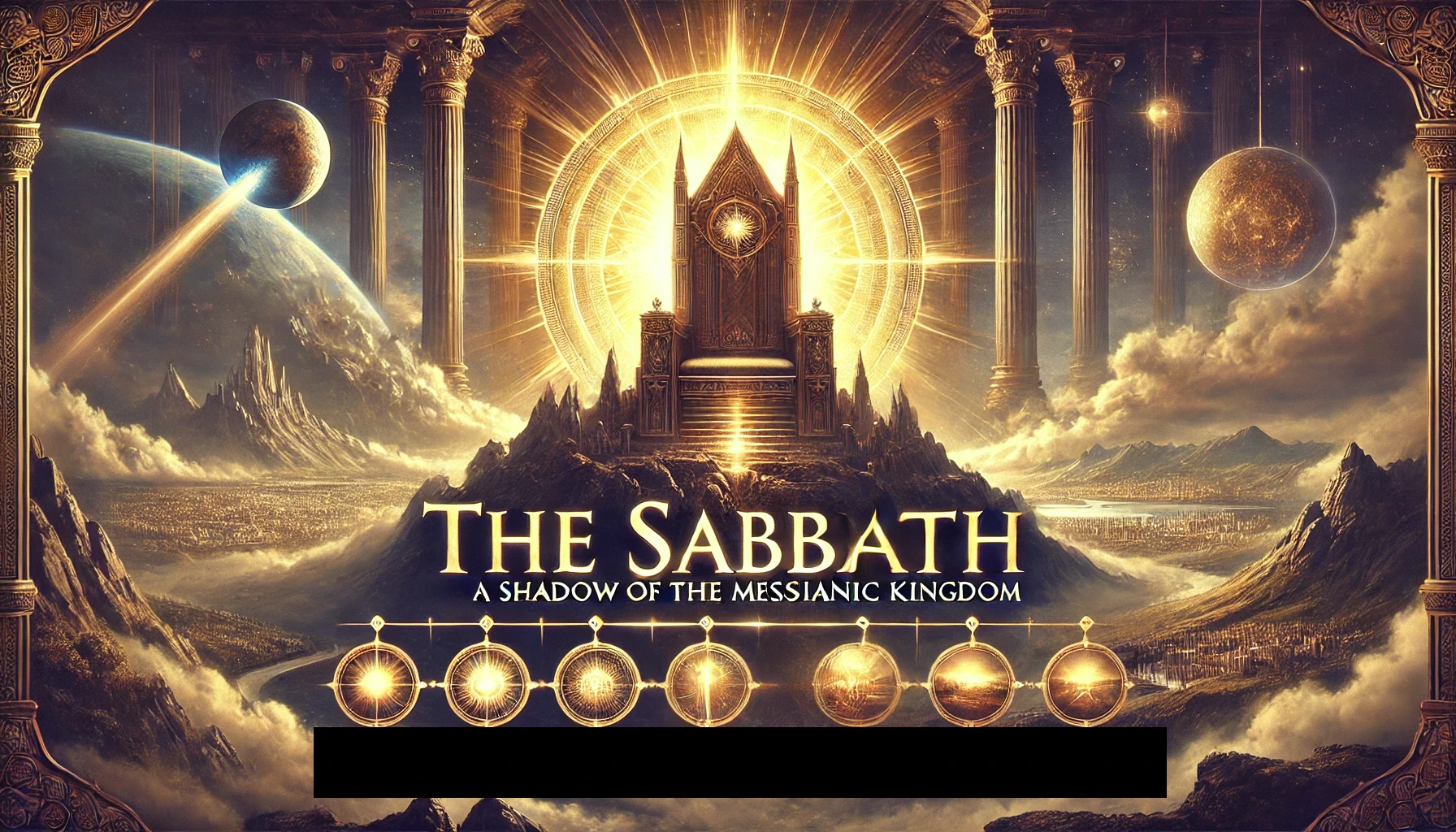The question of whether Christians should observe the Sabbath has been debated for centuries. Some believe that Sabbath observance is a perpetual law given in the Fourth Commandment (Exodus 20:8-11), while others argue that Jesus Christ fulfilled the Law, making Sabbath observance a matter of personal conviction rather than obligation. However, beyond the question of whether to observe it, the Sabbath holds a deeper prophetic meaning—it points to the seventh day as a foreshadowing of the Messianic Reign of Jesus Christ.
The Sabbath as a Sign of God's Plan
The Sabbath was established at creation when God rested on the seventh day (Genesis 2:2-3). This pattern of six days of work followed by one day of rest is more than just a commandment for weekly observance; it represents God’s divine timeline for human history.
According to Biblical patterns, many scholars and early church fathers believed that humanity would exist for six thousand years, corresponding to the six days of creation, followed by a seventh "millennial day"—a one-thousand-year reign of Christ on Earth (Psalm 90:4, 2 Peter 3:8). This seventh day of rest is what we call the Millennial Kingdom of Christ, where He reigns for a thousand years (Revelation 20:4-6).
The Sabbath as a Shadow of the Messianic Kingdom
The Sabbath is more than just a day of physical rest—it is a prophetic sign of the future Kingdom of Christ.
- The 7th Day Represents the Coming Reign of Christ – Just as God worked for six days and rested on the seventh, human history is unfolding in a six-thousand-year period, leading up to the seventh millennium, where Christ will reign in peace and righteousness.
- Entering God's Rest – Hebrews 4:9-11 speaks of a future "Sabbath rest" for God's people. This ultimate rest will be realized when Christ establishes His kingdom, and believers will reign with Him. Observing the Sabbath today reminds us of our future inheritance in that Kingdom.
- The Weekly Sabbath as a Reminder – Every week, when believers pause from work and set apart the Sabbath as holy, it serves as a continual reminder that one day, Christ will bring true rest and restoration to all creation.
Did Jesus Change the Sabbath?
NO! In the New Testament, Jesus emphasized the true purpose of the Sabbath (Mark 2:27-28). He did not abolish it but fulfilled its spiritual meaning. Jesus performed many miracles on the Sabbath, showing that it was not about legalistic restrictions but about restoring and bringing life—the very mission He will complete in the Messianic Kingdom.
The early church met on both the seventh day (Sabbath) and the first day of the week (Sunday), acknowledging both the creation pattern of rest and the resurrection of Christ (Acts 20:7, Colossians 2:16-17). Paul taught that observance of special days should not be a point of division but a matter of conviction (Romans 14:5).
Should Christians Keep the Sabbath Today?
While opinions differ, the Sabbath remains a powerful symbol of God’s divine timeline and the future Kingdom of Christ:
- Those Who Observe the Sabbath (7th-Day Worshipers) – Many believers, including Messianic Jews and True Christians, continue to observe the seventh-day Sabbath (Saturday) as a way to honor God's original commandment and as a sign of faith in Christ’s coming Kingdom.
- Those Who Worship on Sunday (The Lord’s Day) – Many Christians worship on Sunday but even if they do they Should observe the Saturday Sabbath as mentioned in the Bible.
- Those Who Live in the "Sabbath Rest" of Christ – Others see Christ as the fulfillment of the Sabbath and live in a state of continual rest in Him, understanding that all days belong to the Lord (Hebrews 4:9-10). But this is kind of a lame excuse for not observing the Sabbath.
- Yes, you Christians should still observe the Sabbath! Do not accept Apostate Christianity who tell you different than the Bible!
Conclusion: The Sabbath and the Kingdom of God
Regardless of how one observes the Sabbath, its prophetic significance remains: it points to the coming reign of Christ when He will establish His Kingdom on Earth, bringing true peace, restoration, and eternal rest.
By keeping the Sabbath, we are reminded weekly of this ultimate hope—the day when Christ, the Lord of the Sabbath, will return and bring His people into the fullness of His Kingdom.
Do You Observe the Sabbath?
How do you practice Sabbath rest? Do you see it as a sign of Christ’s coming reign? Let’s discuss in the comments!
